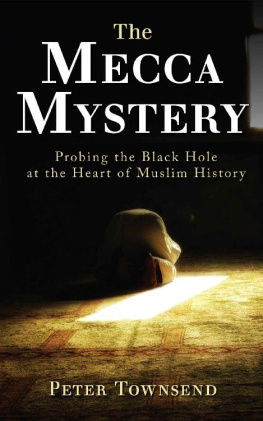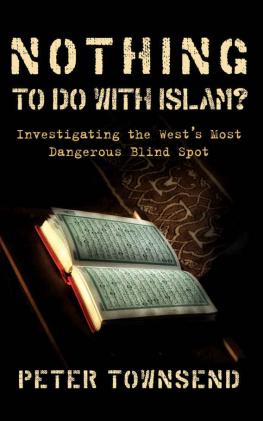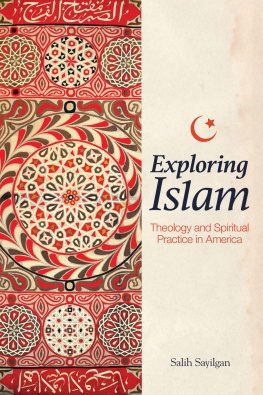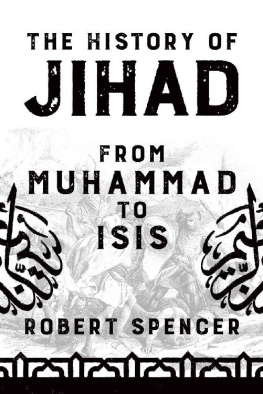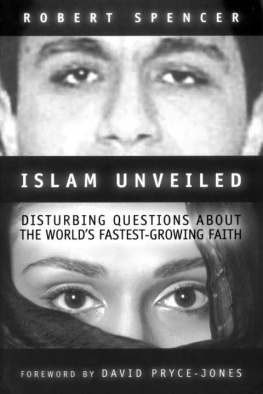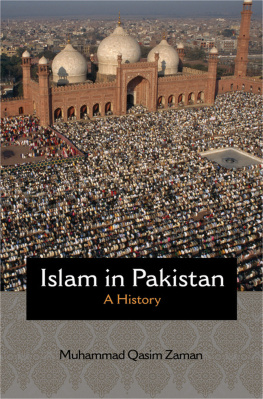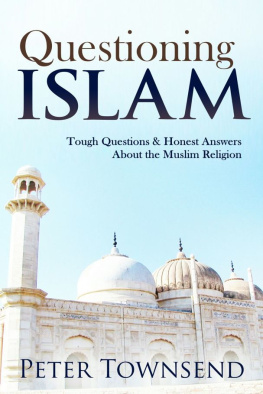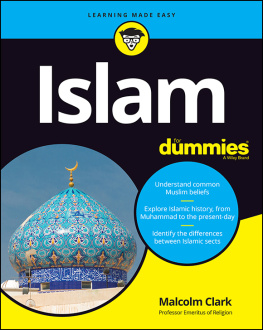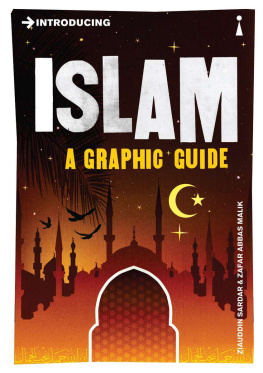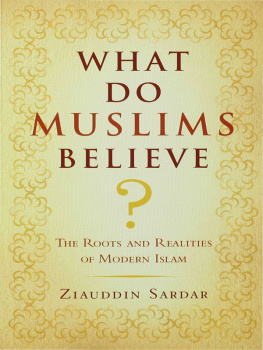All rights reserved. This book or any portion thereof may not be reproduced or used in any manner whatsoever without the express written permission of the author, except for the use of brief quotations in a book review.
Introduction
There is total silence in the mosque as the Imam begins his Friday sermon. Over the next few minutes he holds the congregation in breathless sway as he recounts the glorious occasion of the Prophet Muhammad entering Mecca, after years of struggle, at the head of a victorious army. You can almost feel the elation as the assembled believers hang on to every word of the preacher as he transports them to a time and place that are in some ways more real to them than their present surroundings. As they delight in their beloved prophets victory in the name of Allah, at a location which some of them have visited in person, not a few of those present reflect on how very grateful they are that their faith is based on such a rock-solid historical foundation.
History. It underpins every aspect of the Muslim faith. From the descriptions of how a man named Muhammad was called from his humdrum existence to a life of prophethood, to blow-by-blow accounts of the major battles of the post-Muhammad conquests. Historical accounts are pervasive when it comes to Muslim self-understanding and these accounts act as the foundation for Islamic faith and practice at every turn. How could it be otherwise? Islam is based upon the fundamental idea that God intervened at a specific time, in a specific place and through a specific person to bring his message to an unbelieving world. It is, therefore, of the utmost importance that the historical record upon which Islamic teaching is based should be accurate and verifiable.
Most practicing Muslims would instinctively and passionately argue that this is indeed the case. As far as they are concerned, there exists an unbroken and impeccable historical record that links modern Muslims with the distant Islamic past; a past during which events played out exactly as described in the countless biographies of the prophet and descriptions of the early Arab conquests that line the shelves of Islamic bookshops all around the world. A lot will depend on whether this is, in fact, the case.
In light of the above, it is of the utmost importance that historians honestly and seriously strive to get to the bottom of the questions relating to the origins of early Islam. A basic question to start with is: "How reliable are the historical accounts upon which the faith of more than a billion Muslims rest?" I fully realize that many people will see this question as verging on the nonsensical. It is, after all, common knowledge that Islam, as Ernest Renan memorably put it, emerged in the 'full light of history'.
The problem is that the 'common knowledge' about Islams origins rests, as is so often the case with common knowledge, on some potentially profound untested assumptions. Chief among these assumptions is the conviction that certain key historical documents, written hundreds of years after the time of Muhammad, are the most reliable window into the early origins of Islam that we have.
The issue of the reliability of the Islamic historical record is too important to allow the mostly uncritical acceptance of certain entrenched positions to remain untested. The purpose of this book is, therefore, to pursue the following related lines of enquiry:
- Whether the classical sources underpinning Muslim history stack up as reliable records of the period and the events they seek to describe?
- Whether there are other reliable sources, perhaps largely ignored by those responsible for the traditional accounts that provide alternative yet credible perspectives into the periods and events under discussion?
These are the type of questions that historians should ask as a matter of course when the history of any period is discussed, but the traditional version of Islamic history has largely received a 'free pass' when it comes to serious critical scrutiny.
The result is that documents claiming to shed light on the earliest years of Islam are often accepted as intrinsically trustworthy without even the most basic questions about historical accuracy or reliable transmission being asked. This happens despite the fact that the key texts of other major world religions have now been subjected to more than a century of the most searching investigations.
There are several reasons behind the fact that Islamic sources have so far escaped thorough historical re-examination. Perhaps most significant is the simple fact that this is an exercise fraught with danger. Scholars in the Muslim world face the prospect of being branded as apostates if they are perceived to be deviating too far from accepted versions of Islamic theology and history. This can have very serious consequences. Throughout history, those who challenged Islamic orthodoxy from within the bosom of Islam quickly discovered that this is not something to undertake lightly. The fact that this is not an observation that only applies to the distant past (e.g. the slaughtering of Mutazalite
The fear-factor and the sheer ubiquity of the traditional sources means that very little is happening inside the Muslim world itself as far as a critical re-evaluation of the history of the earliest years of Islam are concerned. The handful of scholars who are working in this field are mostly doing so at Western universities and publishing their findings in obscure academic journals or very expensive scholarly texts. All of this means that there is very little public consciousness, either in the Muslim or Western world, of the myriad of serious questions that are being asked about the early origins of Islam.
This book is a modest attempt to address this situation by providing an accessible overview of the state of research in this crucial area. In the process, I will be interacting with the work of a wide range of scholars. Such a discussion could potentially become very technical very quickly and this is precisely what I would like to avoid in this volume. Readers should, therefore, view this as a two-level work. In the main text, I will endeavor to keep things as readable, accessible and non-technical as possible. This does not mean, however, that I will simply make a series of untested claims. Those who would like to dig deeper, or who would like to verify the accuracy of my interaction with the sources that I refer to, are encouraged to consult the detailed notes and bibliography that are provided at the end of this work in order to identify resources for further reading and in-depth research.
Although I will be making extensive use of the work of other scholars, it should be noted that all views expressed are my own, except of course where the views of others are directly quoted or referenced.
With a project like this, there is a huge temptation to move too quickly from There are questions to be asked about a specific historical period to This is what actually happened. I am going to do my best to avoid that temptation (although it is obviously a great way to gain an audience, just ask Dan Brown) by probing deeply into the problems with the traditional account of Muslim history and entering only lightly into possible alternative histories.
The reason for this is simple. Any alternative reading of history will, barring stunning archaeological or documentary discoveries to confirm it, necessarily operate in the realm of speculation and conjecture. This means that works asking significant questions about the history of Islam have in the past been all too easily dismissed by those who were able to poke holes in the alternative histories that were proposed. Critics then felt able to ignore the basic fact that there are significant problems with the traditional account itself. Lets be clear, the fact that alternative interpretations can be challenged does not automatically validate the traditional account as a kind of last man standing. The questions remain.

